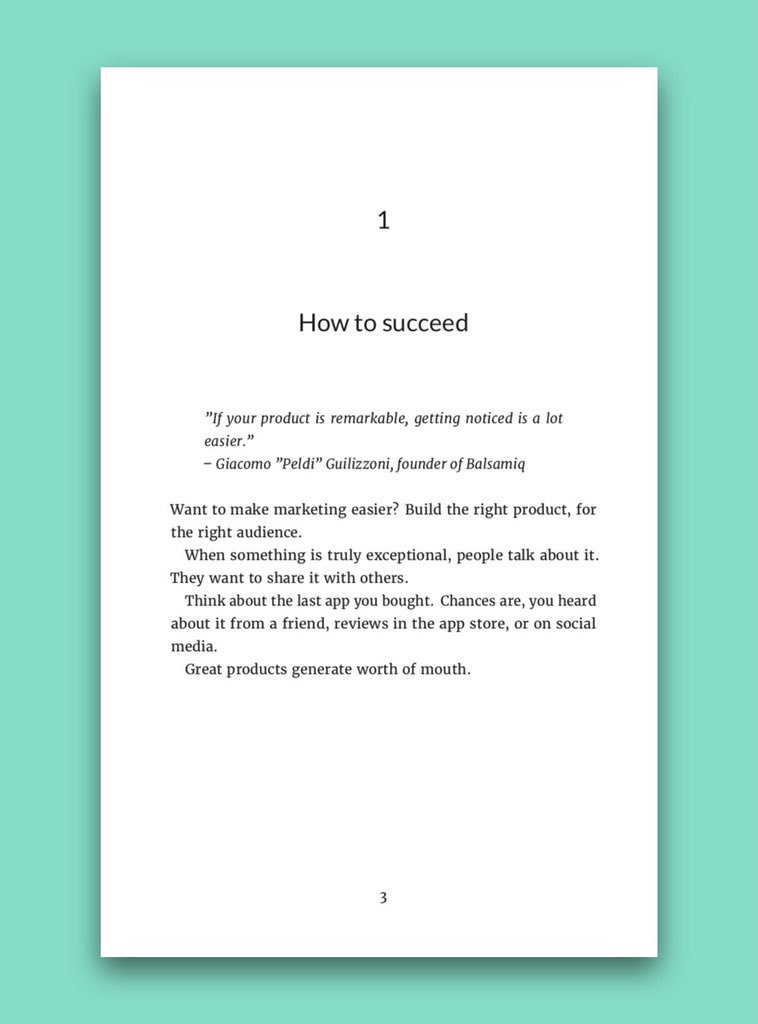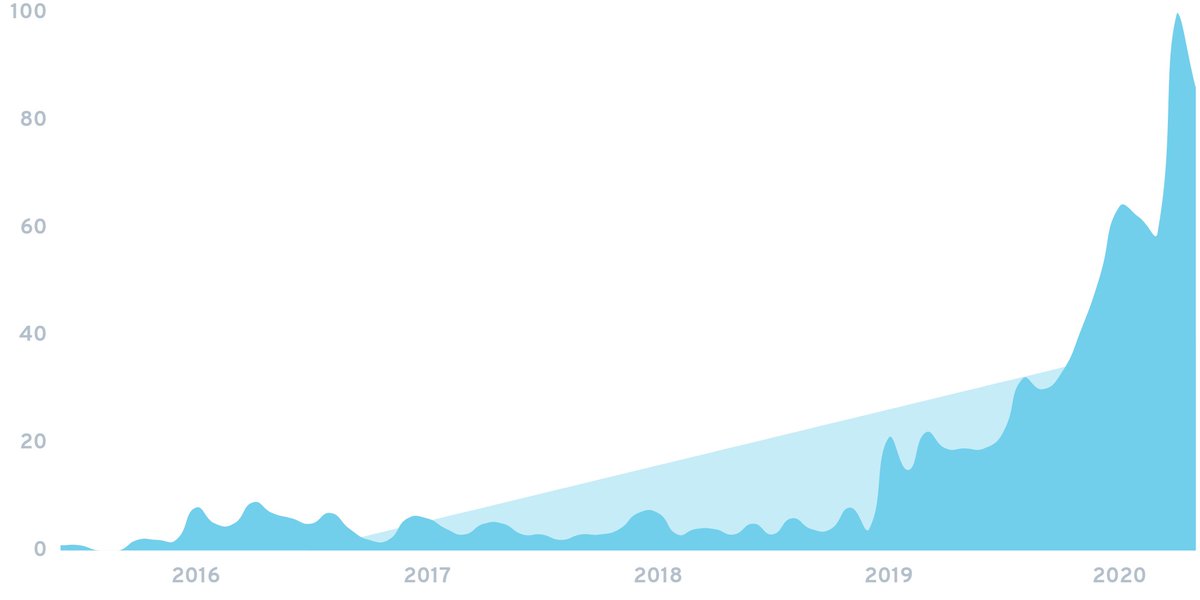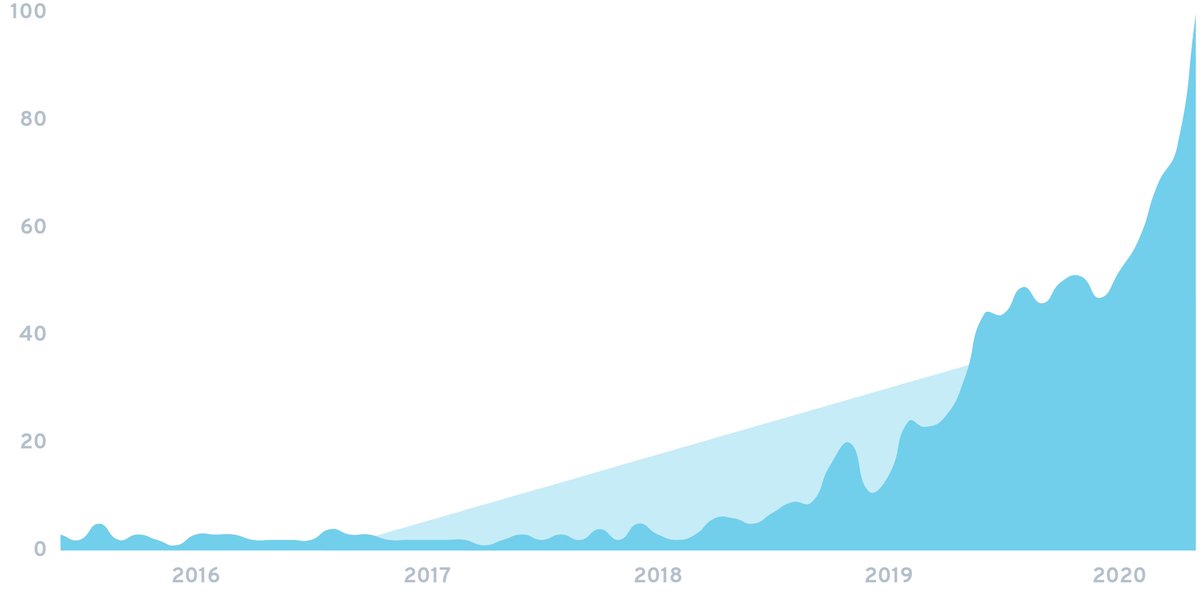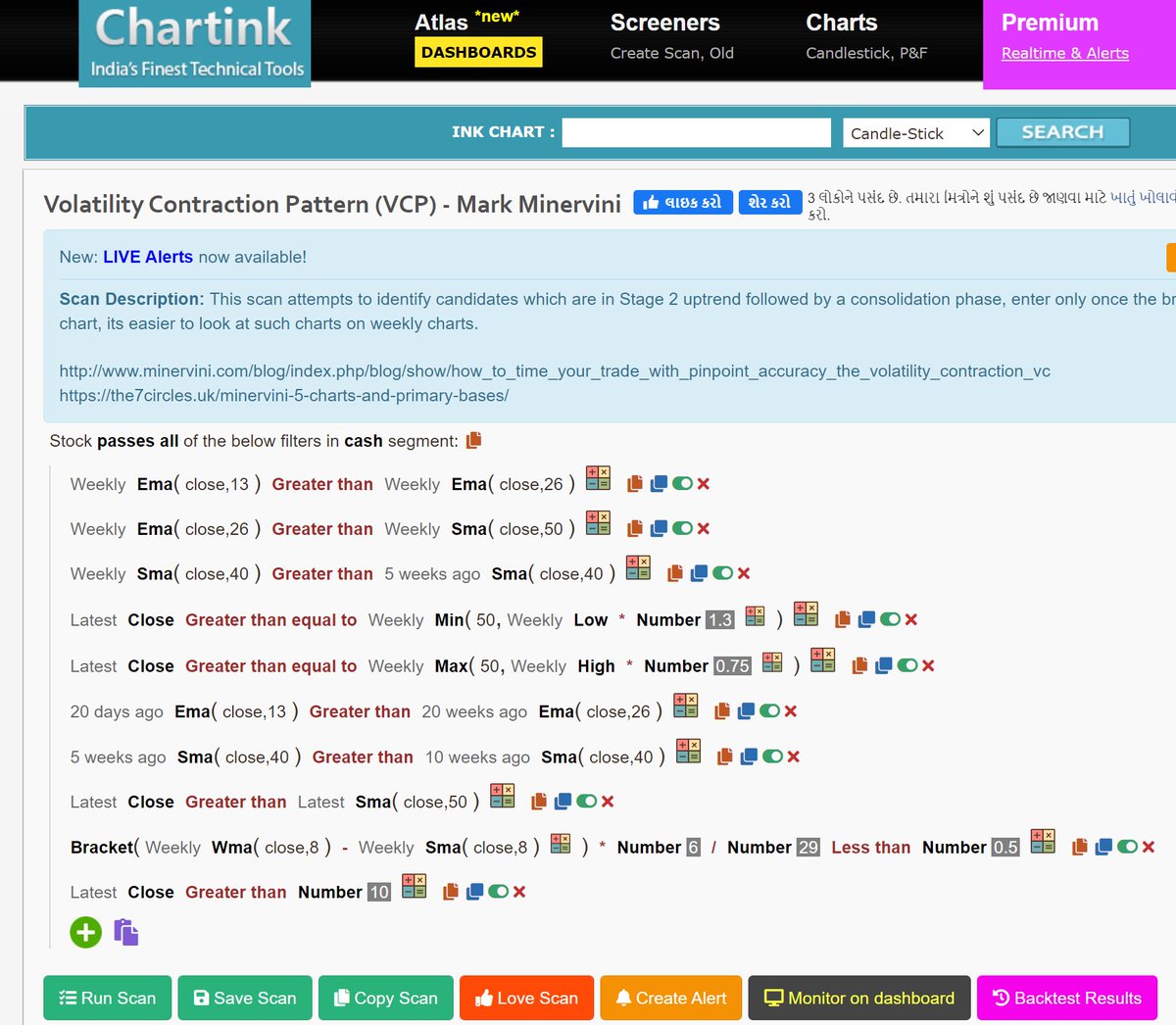Starting a startup is hard. This thread will contain some key advice I think are particularly noteworthy:
1. “If you’re not embarrassed by the first version of your product, you’ve launched too late.” - @paulg The first version of my product was not great, but hey, it worked.
More from Startups
I shipped all these apps in 2020. Most of them generated $0.
🎬 https://t.co/JAhXqsuu6h $0
🌍 https://t.co/BrNUAhfiIT $0
💡 https://t.co/ZWcLfOH4aI $0
🐞 https://t.co/aghOxYEcPI $1.99
👍 https://t.co/2JhJLe27pW $3,025 in 10 days.
But that's ok, just keep shipping! My stories👇
🎬 https://t.co/wuiBp1XsYD is the first thing I created. It's a community for indie makers. The different thing is we post updates in videos. I created it for fun as I think the world doesn't need one more text-based forum, so I make a video one. No monetization plan so far.
🌍 https://t.co/fiwjgCWho5 is a social app. The idea is from Linktree, an app to share your social links. I thought it would be cool to add more visuals to it, and meanwhile we can explore others around. I also have no monetization plan for it. Make it for fun too.
💡 https://t.co/fZfL45uvVX is a platform to connect influencers with their fans. People says it's like @superpeer. But the only difference is it's all sync. Influencers don't need to commit their time to fixed slot. Fans pay to ask questions, influencers can answer at anytime.
Continuing Influenswer... I think the product has its potential. But for now maybe I didn't find the right niche to serve. Will re-evaluate it in future.
🎬 https://t.co/JAhXqsuu6h $0
🌍 https://t.co/BrNUAhfiIT $0
💡 https://t.co/ZWcLfOH4aI $0
🐞 https://t.co/aghOxYEcPI $1.99
👍 https://t.co/2JhJLe27pW $3,025 in 10 days.
But that's ok, just keep shipping! My stories👇
🎬 https://t.co/wuiBp1XsYD is the first thing I created. It's a community for indie makers. The different thing is we post updates in videos. I created it for fun as I think the world doesn't need one more text-based forum, so I make a video one. No monetization plan so far.
🌍 https://t.co/fiwjgCWho5 is a social app. The idea is from Linktree, an app to share your social links. I thought it would be cool to add more visuals to it, and meanwhile we can explore others around. I also have no monetization plan for it. Make it for fun too.
💡 https://t.co/fZfL45uvVX is a platform to connect influencers with their fans. People says it's like @superpeer. But the only difference is it's all sync. Influencers don't need to commit their time to fixed slot. Fans pay to ask questions, influencers can answer at anytime.
Continuing Influenswer... I think the product has its potential. But for now maybe I didn't find the right niche to serve. Will re-evaluate it in future.
You May Also Like
The entire discussion around Facebook’s disclosures of what happened in 2016 is very frustrating. No exec stopped any investigations, but there were a lot of heated discussions about what to publish and when.
In the spring and summer of 2016, as reported by the Times, activity we traced to GRU was reported to the FBI. This was the standard model of interaction companies used for nation-state attacks against likely US targeted.
In the Spring of 2017, after a deep dive into the Fake News phenomena, the security team wanted to publish an update that covered what we had learned. At this point, we didn’t have any advertising content or the big IRA cluster, but we did know about the GRU model.
This report when through dozens of edits as different equities were represented. I did not have any meetings with Sheryl on the paper, but I can’t speak to whether she was in the loop with my higher-ups.
In the end, the difficult question of attribution was settled by us pointing to the DNI report instead of saying Russia or GRU directly. In my pre-briefs with members of Congress, I made it clear that we believed this action was GRU.
The story doesn\u2019t say you were told not to... it says you did so without approval and they tried to obfuscate what you found. Is that true?
— Sarah Frier (@sarahfrier) November 15, 2018
In the spring and summer of 2016, as reported by the Times, activity we traced to GRU was reported to the FBI. This was the standard model of interaction companies used for nation-state attacks against likely US targeted.
In the Spring of 2017, after a deep dive into the Fake News phenomena, the security team wanted to publish an update that covered what we had learned. At this point, we didn’t have any advertising content or the big IRA cluster, but we did know about the GRU model.
This report when through dozens of edits as different equities were represented. I did not have any meetings with Sheryl on the paper, but I can’t speak to whether she was in the loop with my higher-ups.
In the end, the difficult question of attribution was settled by us pointing to the DNI report instead of saying Russia or GRU directly. In my pre-briefs with members of Congress, I made it clear that we believed this action was GRU.
BREAKING: @CommonsCMS @DamianCollins just released previously sealed #Six4Three @Facebook documents:
Some random interesting tidbits:
1) Zuck approves shutting down platform API access for Twitter's when Vine is released #competition
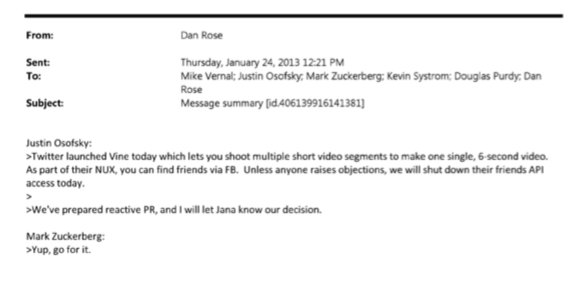
2) Facebook engineered ways to access user's call history w/o alerting users:
Team considered access to call history considered 'high PR risk' but 'growth team will charge ahead'. @Facebook created upgrade path to access data w/o subjecting users to Android permissions dialogue.
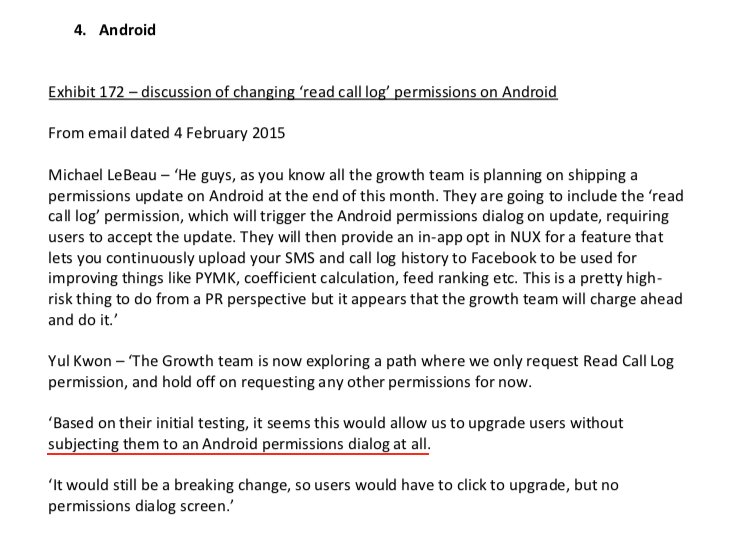
3) The above also confirms @kashhill and other's suspicion that call history was used to improve PYMK (People You May Know) suggestions and newsfeed rankings.
4) Docs also shed more light into @dseetharaman's story on @Facebook monitoring users' @Onavo VPN activity to determine what competitors to mimic or acquire in 2013.
https://t.co/PwiRIL3v9x
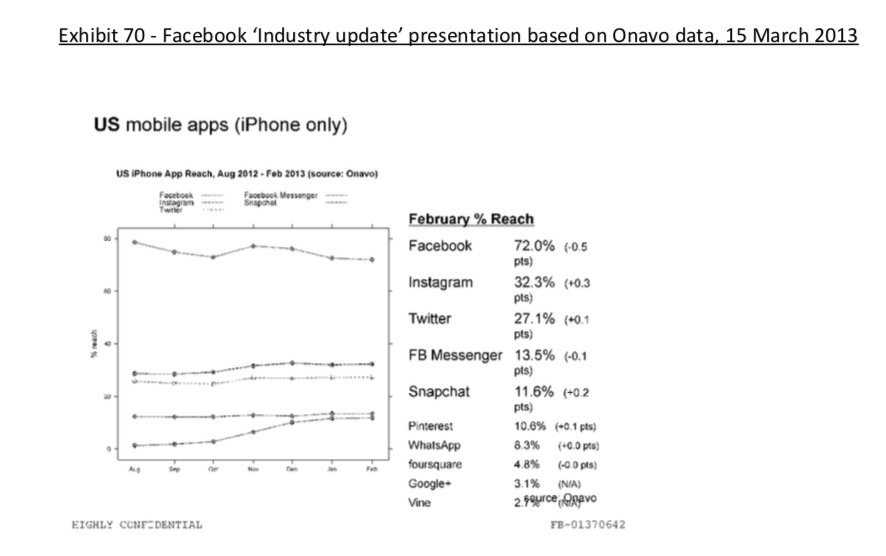
Some random interesting tidbits:
1) Zuck approves shutting down platform API access for Twitter's when Vine is released #competition

2) Facebook engineered ways to access user's call history w/o alerting users:
Team considered access to call history considered 'high PR risk' but 'growth team will charge ahead'. @Facebook created upgrade path to access data w/o subjecting users to Android permissions dialogue.

3) The above also confirms @kashhill and other's suspicion that call history was used to improve PYMK (People You May Know) suggestions and newsfeed rankings.
4) Docs also shed more light into @dseetharaman's story on @Facebook monitoring users' @Onavo VPN activity to determine what competitors to mimic or acquire in 2013.
https://t.co/PwiRIL3v9x





